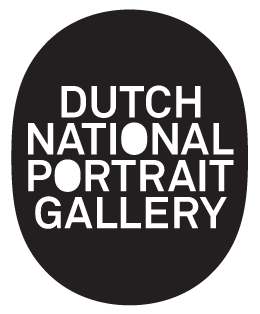©FARREN VAN WYK, SERIE BE YOUNG BOY, BE YOUNG MAN, 2021
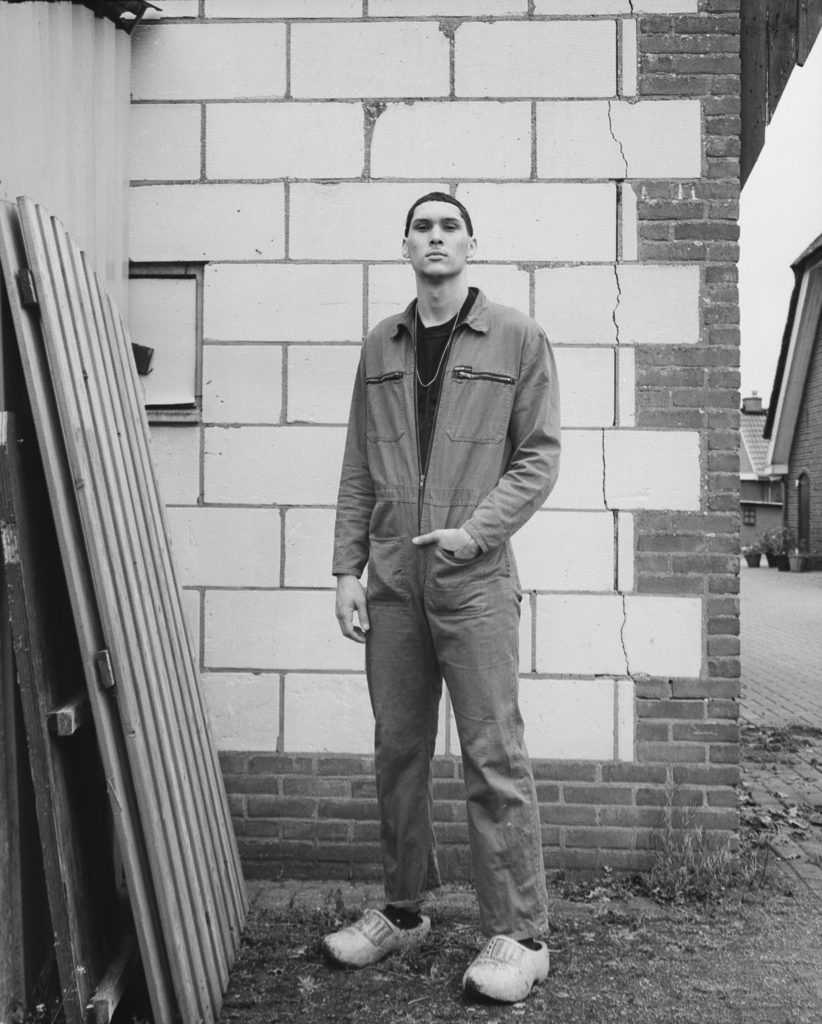
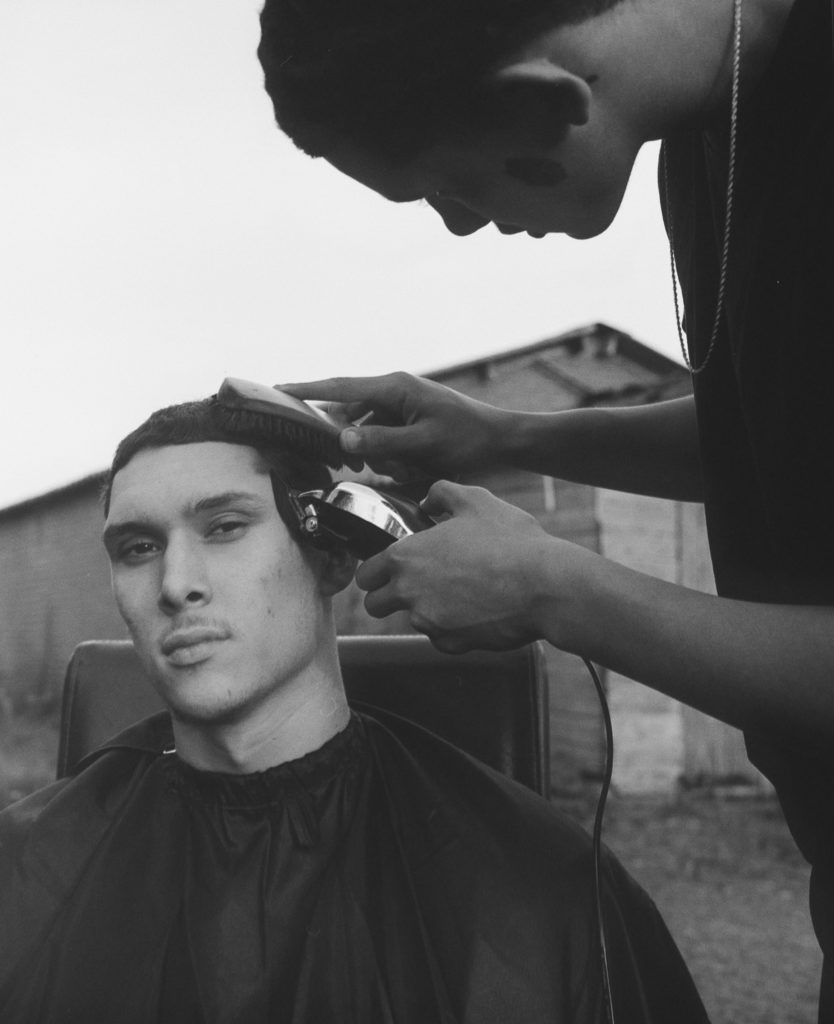
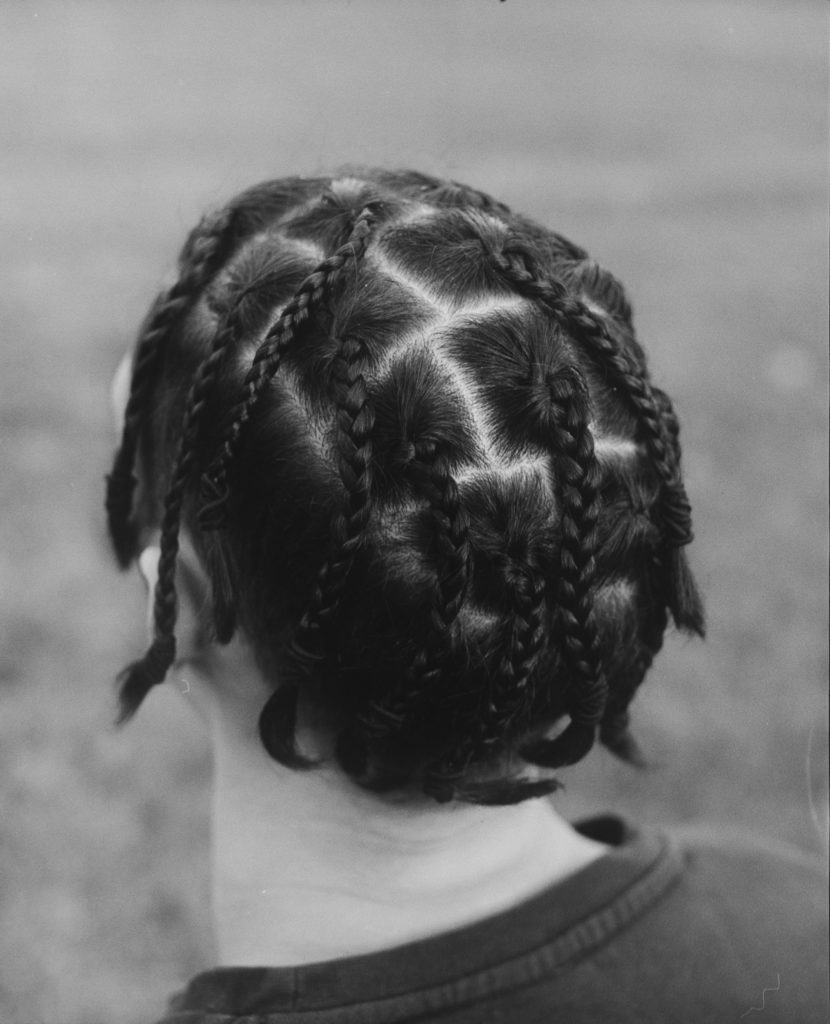
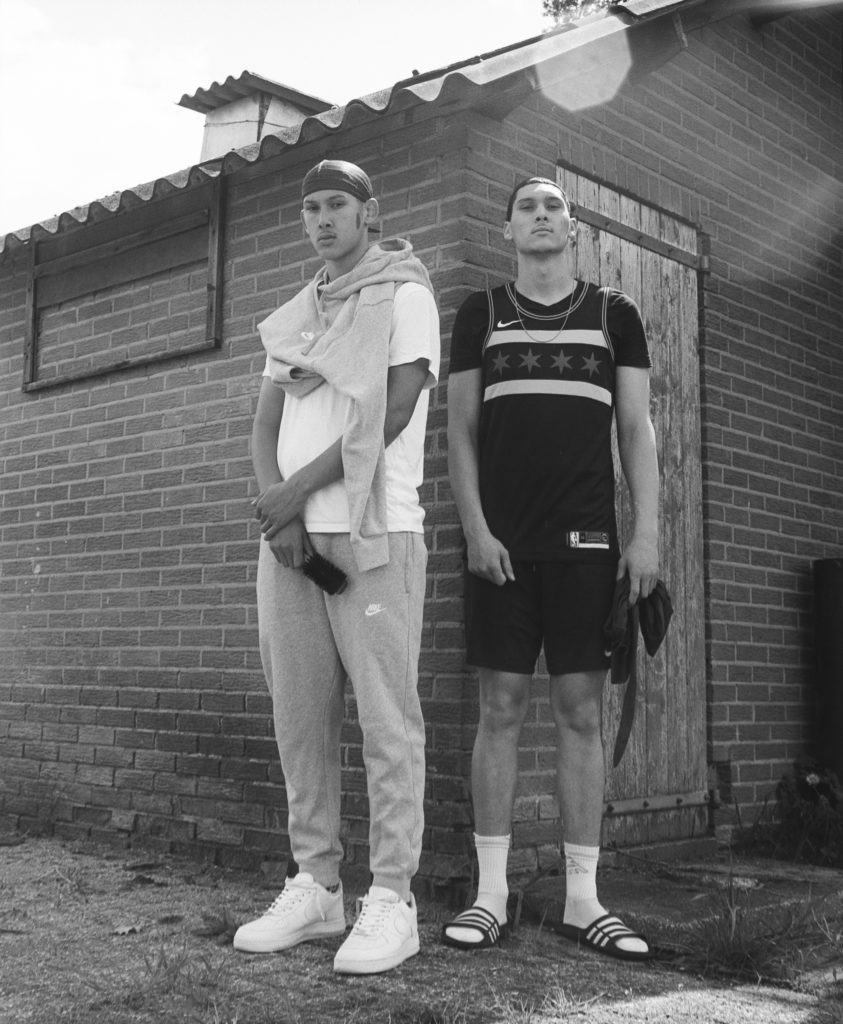
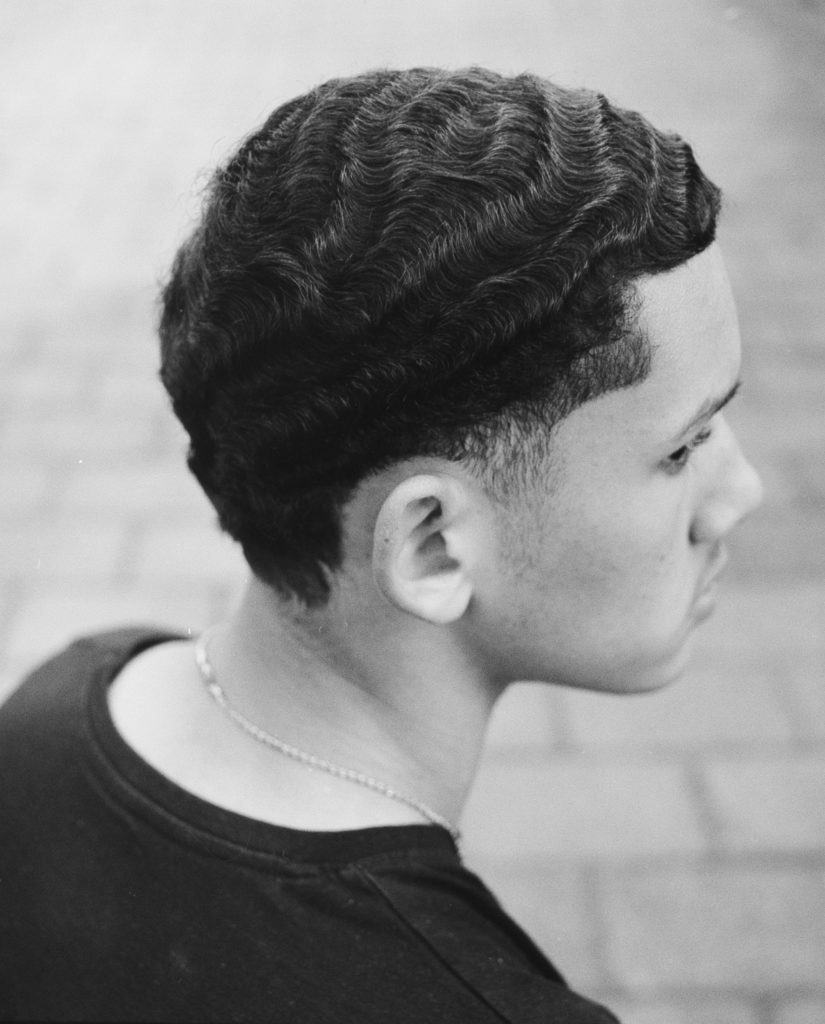
Uit het juryrapport: “Deze serie is met liefde gemaakt. Dat levert goede foto’s op die dicht op de huid zitten. … Zo komen we dicht bij de hoofdpersonen. De fotograaf weet door haar eigen perspectief de serie goed in balans te houden.”
Farren van Wyk (1993) is afgestudeerd aan de HKU (2016). Haar dubbele nationaliteit (Zuid-Afrikaans/Nederlands) vormt de crux van haar werk. De historische en ingewikkelde relatie tussen deze twee landen – slavenhandel, kolonialisme en apartheid – roept vragen op over identiteit en burgerschap. Met haar camera onderzoekt ze deze onderwerpen. Haar werk was o.a. te zien in de Melkweg en de Volkskrant.
De broertjes van de fotograaf bevinden zich in een periode van transitie – van puberteit naar jong volwassenheid en van het normale leven naar een pandemisch nieuw normaal. Van Wyk ziet hoe zij hun identiteit thuis aan het onderzoeken zijn, de plek waar de roots van hun Zuid-Afrikaanse moeder samenkomt met die van hun Nederlandse vader. Door haar camera op hun ontwikkeling te richten zegt zij: ‘Jij doet er toe. Ik hou van jou.’
The jury: “We see at a boy who is in-between adolescence and adulthood. Doubt and poise seem to alternate rapidly. His disposition, however, is self-aware and authentic. The setting, colour scheme and particularly the photographer’s informal approach, gives the photo its intimate quality.“
Farren van Wyk (1993) graduated from the HKU (2016). Her dual nationality (South African/Dutch) is the crux of her work. The historical and somewhat troubling relationship between these two countries – slave trade, colonialism and apartheid – raises questions about identity and citizenship. She explores these topics with her camera. Her work has been showcased at the Melkweg and published in the Volkskrant.
Van Wyk’s brothers are in a period of transition – from puberty to young adulthood and from normal life to a pandemic new normal. Van Wyk sees how they are investigating their identity at home, the place where the roots of their South African mother meet those of their Dutch father. By focusing her camera on their maturing, her message is: ‘You matter. I love you.’
BRAM ENGELAAR, SERIE MATAR A SAUDADE, 2021
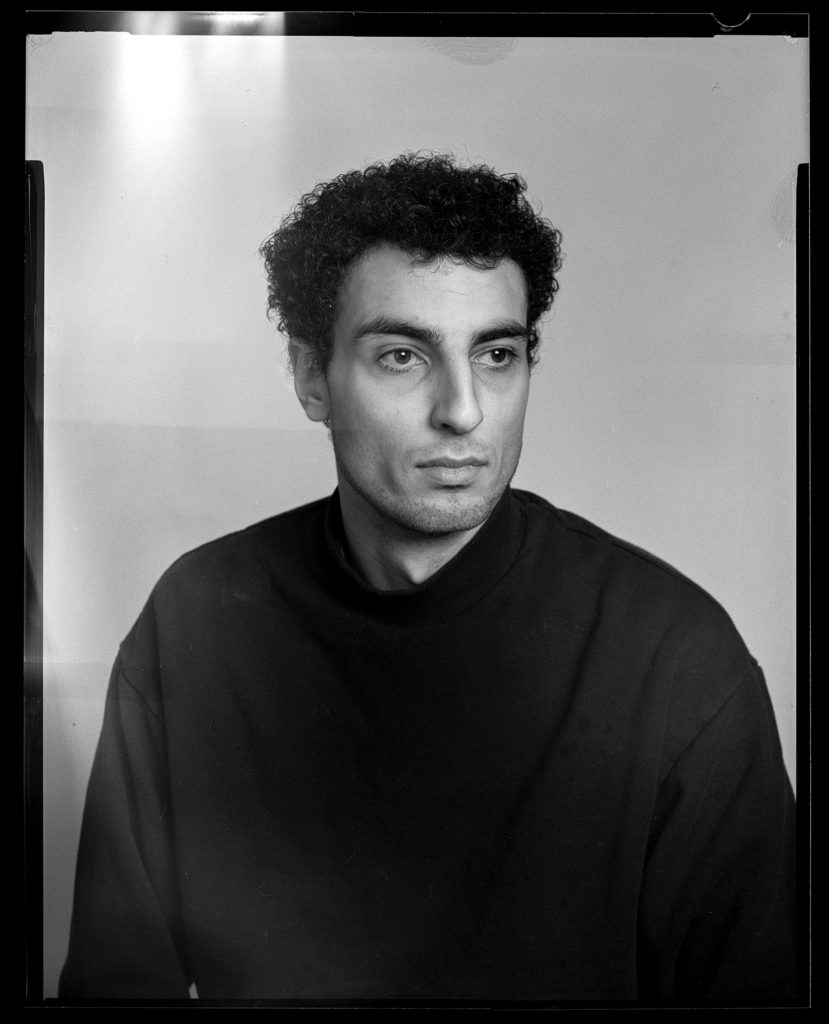
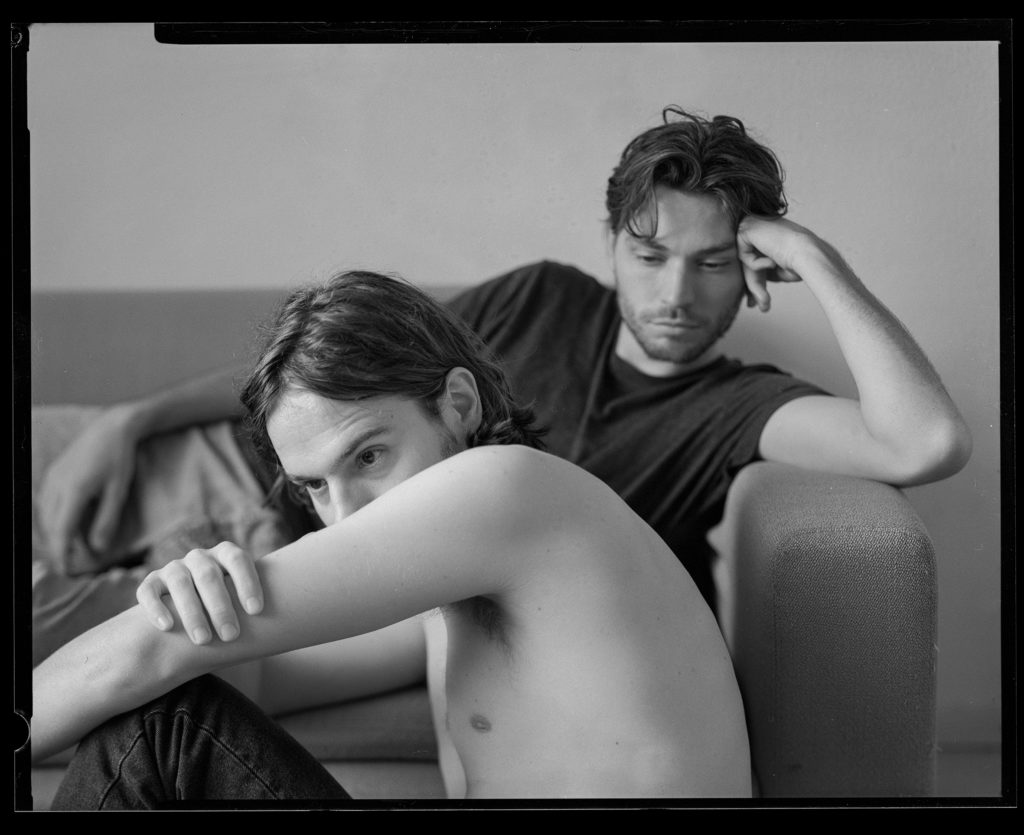
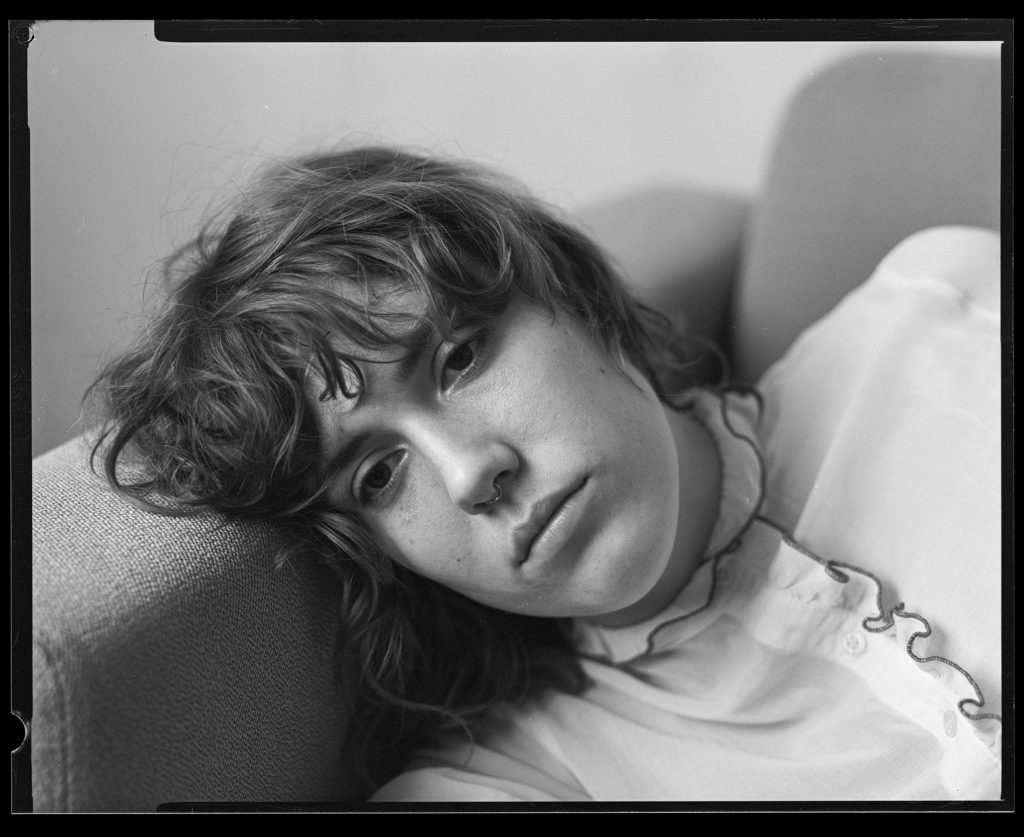
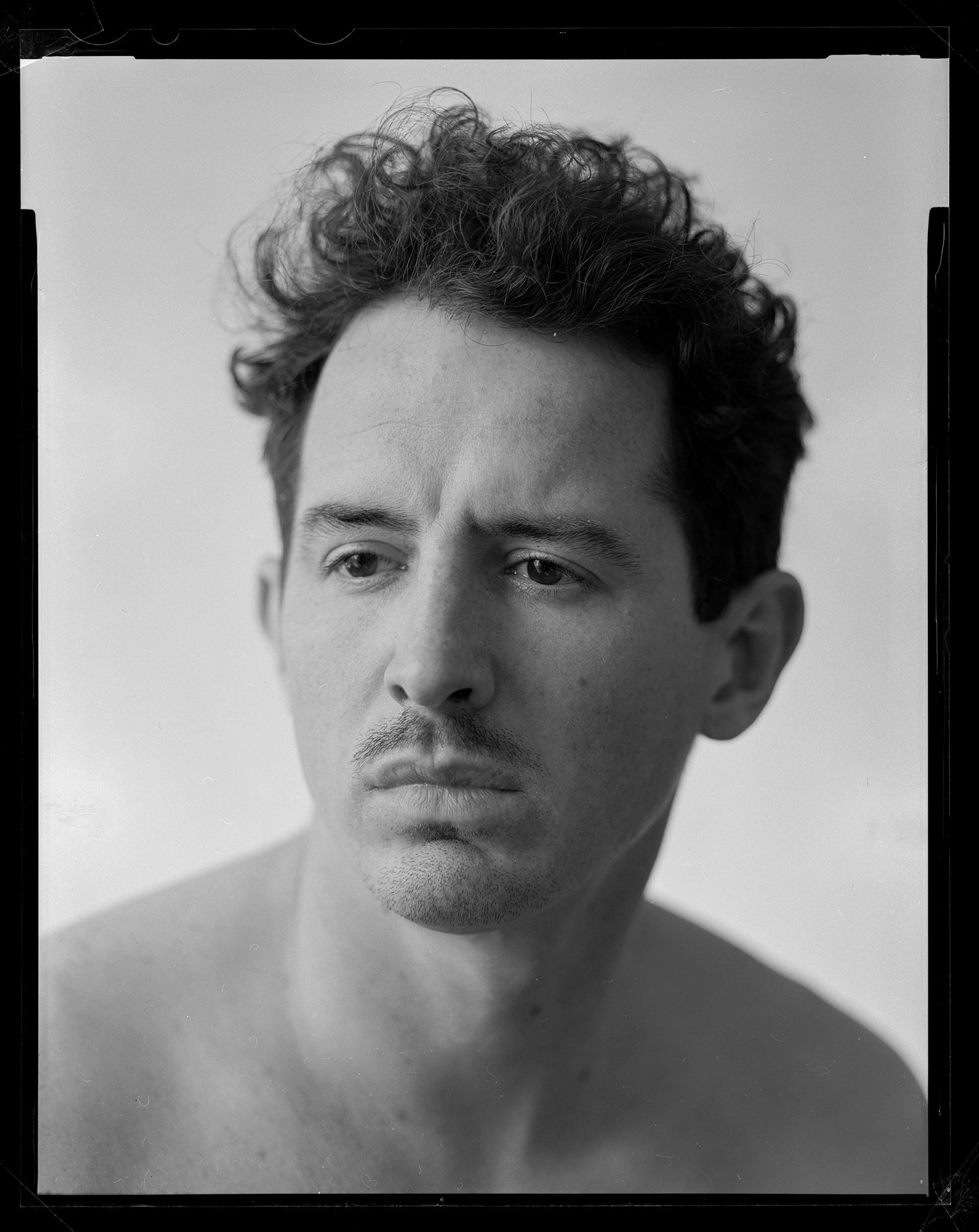
Uit het jury rapport: “Het is knap hoe de fotograaf een serie maakte over iets abstracts als een ‘gevoel’ en er in slaagt zijn modellen een zekere mate van melancholie te laten uitdrukken zonder dat dit overkomt als geacteerde emotie.”
Bram Engelaar (1994) studeerde in 2019 af aan de Hogeschool Utrecht in de richting Communicatie & Multimedia Design, waarna hij zich zelf verder ontwikkelde als fotograaf. Hij doet analoge fotografieprojecten met een poëtische beeldtaal en de mens als centraal thema. Om zich op conceptueel vlak verder te verdiepen is hij in de leer bij fotograaf Milan Gies.
‘Matar a saudade’, een uitdrukking die vermoedelijk terugvoert naar de Portugese ontdekkingsreizigers, staat voor het gevoel van het gemis van thuis en geliefden. Door dit gevoel te doden wordt kracht en vreugde gehaald uit de nostalgie, en wordt het gemis een mooie herinnering. Dit project symboliseert wat ‘saudade’ voor Engelaar betekent.
The jury: “It’s admirable how the photographer made a series about something abstract like a ‘feeling’ and how he managed to have his models express a certain level of melancholy, without this coming across as an acted emotion.”
Bram Engelaar (1994) graduated from Hogeschool Utrecht in 2019 in Communication & Multimedia Design, after which he became an autodidact photographer. He does analog photography projects with a poetic visual language and people as a central theme. To deepen his conceptual skills, he is apprenticed to photographer Milan Gies.
‘Matar a saudade’, an expression that probably goes back to the times of the Portuguese explorers, represents the feeling of missing home and loved ones. By ‘killing’ this feeling, strength and joy are extracted from nostalgia, and the loss becomes a beautiful memory. This project symbolizes what ‘saudade’ means to Engelaar.
©LARA VERHEIJDEN, SERIE DE BERLIJNSE NAAKTKALENDER, 2020
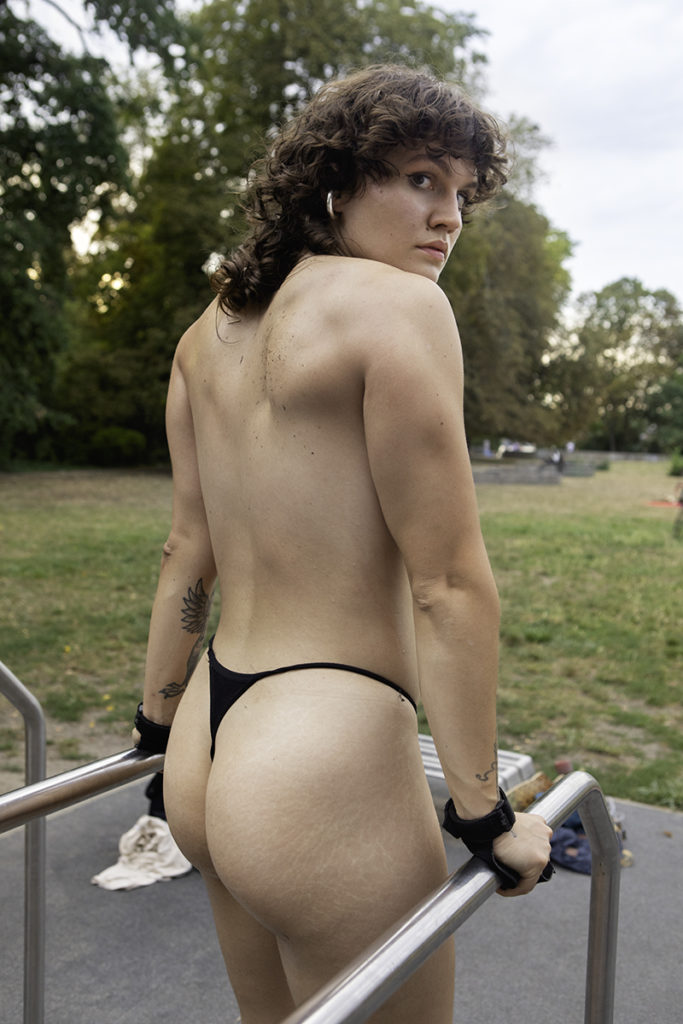
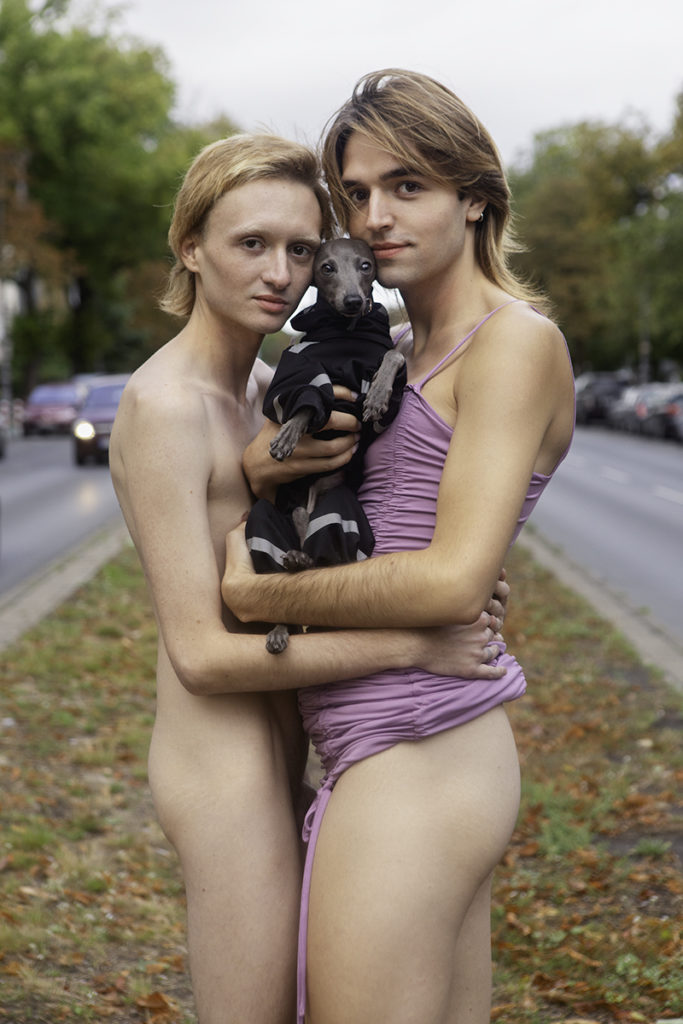
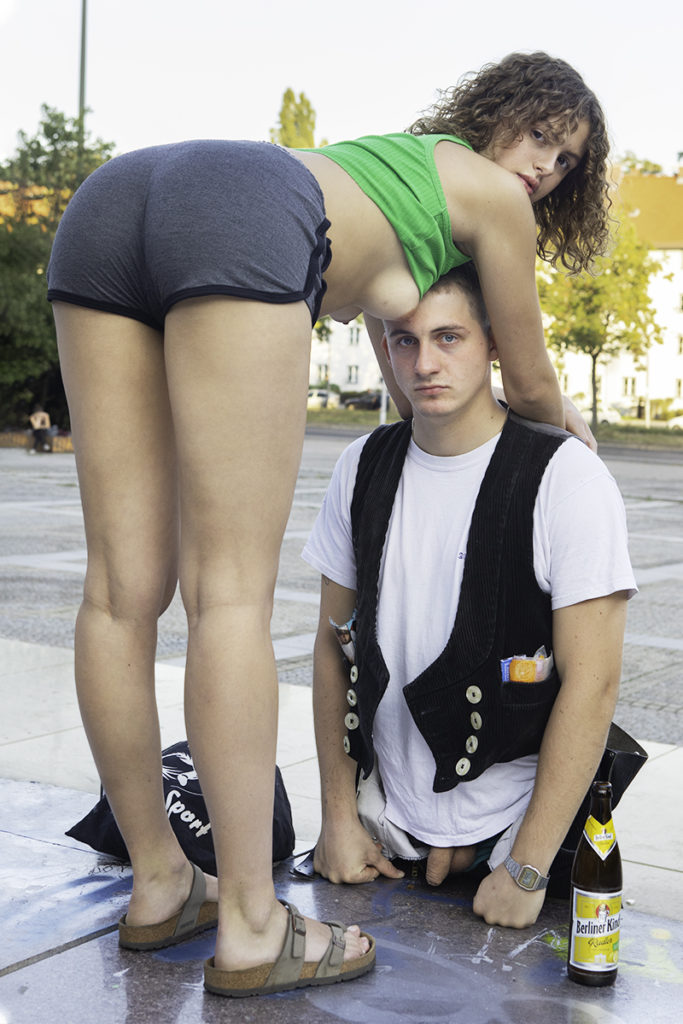
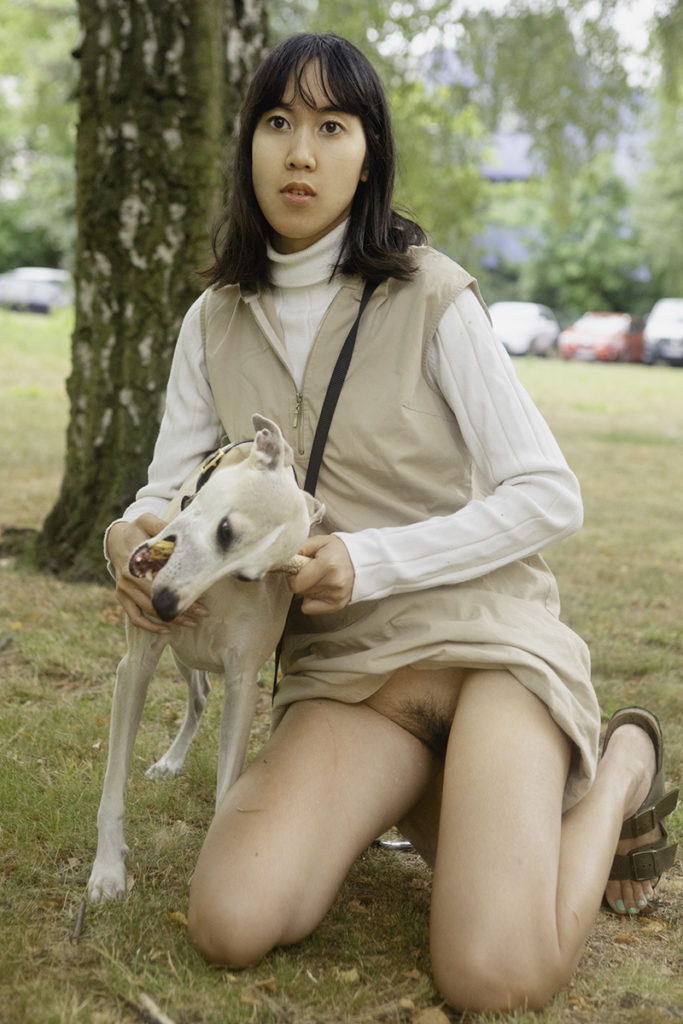
Uit het juryrapport: ‘…. De jury vindt het een spannende serie, die om meerdere redenen opvalt. En is het doorbreken van conventies niet precies wat jong talent zou moeten doen? De foto’s zijn krachtig, kleurrijk, bruisen van plezier en blijven nog lang op het netvlies branden.”
Lara Verheijden (1990) is fotograaf, documentairemaker en instagrammer. Na haar bachelor Neerlandistiek aan de UvA (2014) studeerde ze een jaar fotografie aan de Koninklijke Academie van Beeldende Kunsten. Haar werk was te zien op Unseen en ze fotografeert o.a. voor Vice. Verheijden gaf het begrip naaktkalender een update, met diversiteit en zelfexpressie als belangrijke kenmerken.
Verheijden: ‘Mijn project De Berlijnse Naaktkalender is een alternatief voor de bekende ‘naaktkalender in de garage’. De modellen zijn met hun geliefde of alleen, naakt of halfnaakt geportretteerd op verschillende plekken in Berlijn, zonder kunstlicht, make-up of commerciele kleding. Zo onderzoeken ik en daag ik uit onze houding ten opzichte van uiterlijk, het portret, het naakte lichaam en de seksuele moraal.’
The jury: “The jury finds it an exciting series, which stands out for several reasons. Isn’t breaking conventions exactly what young talent should be doing? The photos are powerful, colourful, and will remain on the retina for a long time to come.”
Lara Verheijden (1990) is a photographer, documentary maker and Instagrammer. After her bachelor’s degree in Dutch Linguistics at the UvA (2014), she studied photography for a year at the Royal Academy of Art. Unseen showcased her work and she photographs for Vice. Verheijden updated the concept of the nude calendar, with diversity and self-expression as important features.
Verheijden: ‘My project The Berlin Nude Calendar is an alternative to the well-known ‘nude calendar in the garage’. The models are portrayed with their loved ones or alone, nude or semi-nude in various places in Berlin, without artificial light, make-up or commercial clothing. In this way I examine and challenge our attitude towards appearance, the portrait, the naked body and sexual morality.’
